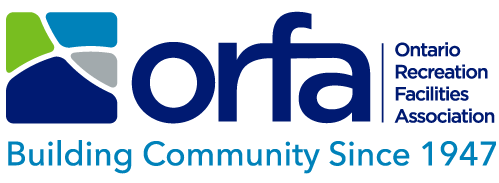- ORFA Home
- The Recreation Facility Profession
- ORFA News and Alerts
- Potential Amendments to Operating Engineers Regulation
ORFA News
Open for Public Comment: regarding potential amendments to the Operating Engineers regulation (O. Reg. 219/01) under the Technical Standards and Safety Act, 2000.
August 21, 2017 - The Ontario Ministry of Government and Consumer Services is seeking your input regarding potential amendments to the Operating Engineers regulation (O. Reg. 219/01) under the Technical Standards and Safety Act, 2000.
The registry allows members of the public to participate in developing regulations by providing comments on regulatory proposals. The ministry will be taking the input it receives into consideration when bringing forward the final regulation for approval. The comment period will close on September 26.
We encourage you to provide feedback on the regulatory proposals available at the following link:
http://www.ontariocanada.com/registry/view.do?postingId=24645&language=en
What are the Potential Changes?
The Ministry of Government and Consumer Services (MGCS), in collaboration with the Technical Standards and Safety Authority (TSSA), established a 15-member panel of representative Operating Engineers (OE) stakeholders. The purpose of the industry panel was to make recommendations to government on how to modernize the OE regulation while maintaining high-levels of public safety.
The panel reached consensus on 23 out of the 25 recommendations they proposed, which are aimed at achieving the following key outcomes:
- Reducing undue burden on business
- Encouraging innovation
- Improving regulatory clarity
- Improving regulatory compliance
- Addressing inadequate labour supply
- Modernizing the operating engineer certification system
- Improving public knowledge of the operating engineer profession
Some of the key recommendations the panel proposed include the following:
- The regulation should adopt a risk-based approach to ensure that any regulatory requirements imposed on business are informed by the risk posed by the plant.
- The regulation should include two alternate paths that plants can adopt to achieve regulatory compliance:
- Path 1 (Category-based requirements) – This approach would provide plants with category-based requirements to fulfill based on the risk rating of a plant type. Risk ratings would be developed for different categories of OE plants.
- Path 2 (Site-specific requirements) – This approach would provide plants with an opportunity to develop their own site-specific risk and safety management plan (RSMP). For Path 2, the regulation would identify requirements for what would have to be included in the RSMP, but the onus would rest with the plant owner to develop a plan that provides sufficient evidence to prove that the plant would be able to maintain the acceptable risk-level.
- TSSA and the ministry should consider opening up other avenues to acquire qualifying experience to ensure candidates are able to get the experience required to achieve higher certifications.
Feedback
The 25 recommendations are contained in the “Operating Engineers Regulatory Review Findings and Recommendations Report”, which is now available on the Ontario Regulatory Registry. We encourage you to provide feedback on all recommendations using the following link: http://www.ontariocanada.com/registry/view.do?postingId=24645&language=en
